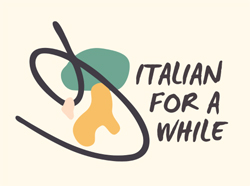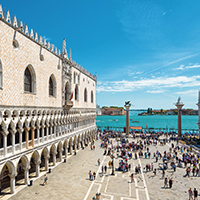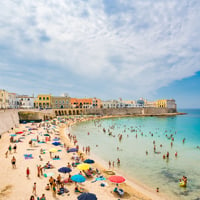Moving to Rome
Last updated on Aug 20, 2023
Summary: Expatriates are drawn to Rome, Italy for its rich history, vibrant culture, and delicious cuisine. Rome is a bustling city with plenty of attractions, from the Colosseum to the Trevi Fountain, and its mild climate makes it an ideal place to live. Before moving to Rome, it is important to be aware of the cost of living, which is higher than in many other parts of Italy. Additionally, it is important to be aware of the language barrier, as many locals do not speak English. Finally, it is important to be aware of the traffic and parking regulations, as they can be quite strict.
What do I need to know before moving to Rome?
When we asked people what advice they would give someone preparing to move to Rome, they said:
"The experience of living in the Eternal City can't be beat. The food is fantastic. Fresh pasta is divine. However, the Italian way of life is very different than that of the US way of life. At times, you will be frustrated and upset. For example, imagine going to the supermarket for days on end and there is no milk or fresh produce because there is a transportation strike going on. All notions of right and wrong do not exist here especially when driving. Italians will honk at you if you are going too slowly and they want to pass you or if you pause to wait for a pedestrian to cross the street you will be yelled at and honked at for not attempting to swerve around the pedestrian. My advice is to try to always remain calm and practice patience. If life gets too exasperating, go have a cappucino or better yet, get some good pizza and pasta and tackle your problem the next day. Another good tip, learn Italian. Make Italian friends who can help you overcome any difficulties," commented one expat who made the move to Rome.
"Rome is a vibrant and exciting city with a rich history and culture. It is important to be aware of the language barrier, as Italian is the official language of the city. Expats should also be aware of the cost of living in Rome, which is higher than in many other cities in Italy. Additionally, it is important to research the different neighborhoods in Rome and find one that best suits your needs. Public transportation is widely available and is a great way to get around the city. Finally, it is important to be aware of the local customs and etiquette in Rome, as it is a very traditional city," remarked one expat in Rome, Italy.
How do I find a place to live in Rome?
We asked expats how they chose their neighborhood and found a place to live. They answered:
"When looking for a place to live in Rome, it is important to consider your budget, desired location, and the type of accommodation you are looking for. There are a variety of options available, from renting an apartment or house to staying in a hostel or hotel. If you are looking for a more permanent residence, you can search online for rental listings or contact a local real estate agent. Additionally, there are many websites that offer short-term rentals, such as Airbnb, HomeAway, and Booking.com. It is also possible to find furnished apartments for rent through websites such as EasyRoommate and Spotahome. Finally, if you are looking for a more traditional living arrangement, you can look for a room in a shared apartment or house," remarked one expat who made the move to Rome.
"My husband and I looked at over 35 apartments before finally finding the "right" one. We used leasing agents. We lived in a corporate apartment for 3 months and walked around/drove around a lot looking at the buildings and neighborhoods. A lot of the apartments we saw were too dark, the spaces were all cut up into smaller areas, weren't big enough, no elevator available (big consideration when you have small children), etc," explained one expat living in Rome, Italy.

Become ‘Italian for a While’ with IFA! Learn in Italy on a 1-week to 12-month program - open to students, young adults, graduates, digital nomads, professionals, groups, faculty-led programs, and more. Take courses at an accredited school while immersing yourself in the language, life, and culture among your international peers. Submit an inquiry with IFA to learn more.
Click connect to have our partner contact you via e-mail and/or phone.

Become ‘Italian for a While’ with IFA! Learn in Italy on a 1-week to 12-month program - open to students, young adults, graduates, digital nomads, professionals, groups, faculty-led programs, and more. Take courses at an accredited school while immersing yourself in the language, life, and culture among your international peers. Submit an inquiry with IFA to learn more.
Click connect to have our partner contact you via e-mail and/or phone.
What is a typical expat home or apartment like in Rome?
"Expat homes and apartments in Rome are typically spacious and modern, with high ceilings and large windows that let in plenty of natural light. Many apartments have balconies or terraces, offering stunning views of the city. Expat homes and apartments are often located in the city center, close to popular attractions, restaurants, and shops. They are typically well-equipped with modern appliances and amenities, such as air conditioning, Wi-Fi, and cable TV," said one expat who made the move to Rome.
"We live in a 2 bedroom, 2 bathroom (140 square meter) apartment with 3 separate balconies. This is typical for the type of housing available in the city. A little further out of the center, you can find "villinos" which are like townhouses or even villas with gardens. Apartments here are either furnished or unfurnished. In an unfurnished apartment, you may even have to provide your own lights, kitchen appliances and counters," explained one expat living in Rome, Italy.
What is the average cost of housing in Rome?
If you are thinking about moving to Rome, cost of living in probably a key consideration. Expats commented about the cost of housing:
"Housing costs are much higher here than where we used to live outside of Seattle, WA. We pay 2077 euros a month for our apartment. This is probably a little below average as our apartment is on the 1st floor. The higher you go up in floors, the higher the rent. We only paid $1500 in a mortgage payment when we lived in Washington State," replied a member in Rome.
"The cost of housing in Rome can vary greatly depending on the area and type of accommodation. Generally, the average cost of renting an apartment in Rome is around €1,000 to €1,500 per month, while the average cost of buying a property in Rome is around €3,000 to €4,000 per square meter," commented one expat who made the move to Rome.
Should I buy or rent a home in Rome?
If you have not spent a lot of time in Rome, you should rent before even thinking about buying. We asked expats there about the buy vs. rent decision:
"Renting a home in Rome can be a great option for those who are looking for a short-term stay in the city. It can be a more cost-effective option than buying a home, and it can also provide more flexibility if you are unsure of how long you will be staying in the city. On the other hand, buying a home in Rome can be a great investment if you plan to stay in the city for a longer period of time. It can also provide more stability and security, as well as the potential for appreciation in value. Ultimately, the decision to buy or rent a home in Rome will depend on your individual needs and preferences," explained one expat living in Rome, Italy.
What should I pack when moving to Rome?
We asked people living in Rome to list three things they wish they had brought and three they wish they had left behind. They responded:
"Wish I had brought: 1. Lots of books. The books in English here are really expensive. Paperbacks at Feltrinelli International range anywhere from 12 euros to 25 euros or more. 2. Typical American sauces, seasonings and mixes like barbecue sauce, taco sauce, cake mix, instant pudding mix, jello mix, etc. These can be found here only at Castroni and are really expensive. 3. Vitamins (bulk kind that can be found at Sam's or Costco) because they are also very expensive here and come in small bottles. Wish I had left at home: Most of my clothes. The Italian clothing style is chic and trendy. If you hit the massive biannual sales in February and August, you will be able to pick up some really nice pieces at greatly reduced prices (50-70% off)," said one expat in Rome.
"When moving to Rome, it is important to pack clothing suitable for the climate. Rome has hot, humid summers and mild winters, so it is important to bring clothing that can be layered. Additionally, it is important to bring comfortable walking shoes, as Rome is a city best explored on foot. It is also important to bring any necessary medications, as well as any important documents such as passports and visas. Finally, it is important to bring any items that will make the transition to a new home easier, such as favorite books, photos, and other sentimental items," remarked one expat who made the move to Rome.
 Italian For A While
Italian For A WhileConnect
Become ‘Italian for a While’ with IFA! Learn in Italy on a 1-week to 12-month program - open to students, young adults, graduates, digital nomads, professionals, groups, faculty-led programs, and more. Take courses at an accredited school while immersing yourself in the language, life, and culture among your international peers. Submit an inquiry with IFA to learn more.
Click connect to have our partner contact you via e-mail and/or phone.
 Italian For A While
Italian For A WhileBecome ‘Italian for a While’ with IFA! Learn in Italy on a 1-week to 12-month program - open to students, young adults, graduates, digital nomads, professionals, groups, faculty-led programs, and more. Take courses at an accredited school while immersing yourself in the language, life, and culture among your international peers. Submit an inquiry with IFA to learn more.
Connect
Click connect to have our partner contact you via e-mail and/or phone.
What cultural faux pas should I try to avoid making in Rome?
We asked people in Rome if they could share any humorous cultural blunders they commited. For new expats, keep in mind that these incidents are an inevitable part of expat life. Learning to laugh about them is the key!:
"It is important to be mindful of cultural differences when visiting Rome. It is important to be respectful of local customs and traditions, and to dress appropriately. Avoid wearing revealing clothing, such as shorts or tank tops, as this is considered disrespectful. Additionally, it is important to be aware of the local customs when it comes to dining etiquette. For example, it is considered rude to leave food on your plate, and it is also considered rude to ask for a doggy bag. Finally, it is important to be aware of the local customs when it comes to public displays of affection. While it is acceptable to hold hands, kissing and hugging in public is generally frowned upon," said one expat in Rome.
"I have had a few emotional outbursts where I yell and scream in English out of frustration or compare the way things are done in the States, quite loudly, openly putting down the Italian way. So embarassing! I have since learned not to do that," remarked one expat who made the move to Rome.
Why do people move to Rome?
When we asked people why foreigners move to Rome, they responded:
"Rome is a vibrant and historic city that offers a unique cultural experience for expats. The city is home to some of the world's most iconic landmarks, such as the Colosseum, the Pantheon, and the Trevi Fountain, making it a great destination for sightseeing. Rome also offers a wide variety of delicious cuisine, from traditional Italian dishes to international flavors. The city is also known for its vibrant nightlife, with plenty of bars, clubs, and restaurants to explore. Additionally, Rome is home to a number of universities and other educational institutions, making it an attractive destination for expats looking to further their studies. Finally, the city's mild climate and Mediterranean atmosphere make it a great place to live and work," said one expat living in Rome, Italy.
 Italian For A While
Italian For A WhileConnect
Become ‘Italian for a While’ with IFA! Learn in Italy on a 1-week to 12-month program - open to students, young adults, graduates, digital nomads, professionals, groups, faculty-led programs, and more. Take courses at an accredited school while immersing yourself in the language, life, and culture among your international peers. Submit an inquiry with IFA to learn more.
Click connect to have our partner contact you via e-mail and/or phone.
 Italian For A While
Italian For A WhileBecome ‘Italian for a While’ with IFA! Learn in Italy on a 1-week to 12-month program - open to students, young adults, graduates, digital nomads, professionals, groups, faculty-led programs, and more. Take courses at an accredited school while immersing yourself in the language, life, and culture among your international peers. Submit an inquiry with IFA to learn more.
Connect
Click connect to have our partner contact you via e-mail and/or phone.
How are healthcare services Rome?
When we asked expats and global nomads about the quality of medical care in Rome, they replied:
"Rome offers a wide range of healthcare services to its citizens. The Italian National Health Service (Servizio Sanitario Nazionale) provides free or low-cost healthcare to all Italian citizens, including those living in Rome. The city also has a number of private hospitals and clinics that offer a variety of medical services. Rome is home to several world-renowned medical research centers, such as the National Institute for Cancer Research and the National Institute for Infectious Diseases. Additionally, Rome has a number of specialized medical centers, such as the Institute for Cardiovascular Diseases and the Institute for Neurological Diseases. Rome also has a number of pharmacies, which provide prescription medications and over-the-counter drugs," stated one expat who made the move to Rome.
What are medical services in Rome like?
When we asked expats and global nomads about the quality of medical care in Rome, they replied:
"Rome offers a wide range of medical services for its citizens and visitors. The city has a number of public and private hospitals, clinics, and medical centers that provide a variety of medical services, including general and specialized care. Rome also has a number of specialized medical centers that provide specialized care in areas such as cardiology, neurology, and oncology. Additionally, Rome has a number of pharmacies and medical supply stores that provide a variety of medications and medical supplies. Rome also has a number of medical research centers that are dedicated to researching and developing new treatments and therapies," wrote one expat living in Rome.
About the Author
 Betsy Burlingame is one of the founders of Digital Nomad Exchange and the Founder and President of Expat Exchange. She launched Expat Exchange in 1997 as her Master's thesis project at NYU. Prior to Expat Exchange and Digital Nomad Exchange, Betsy worked at AT&T in International
and Mass Market Marketing. She graduated from Ohio Wesleyan University
with a BA in International Business and German.
Betsy Burlingame is one of the founders of Digital Nomad Exchange and the Founder and President of Expat Exchange. She launched Expat Exchange in 1997 as her Master's thesis project at NYU. Prior to Expat Exchange and Digital Nomad Exchange, Betsy worked at AT&T in International
and Mass Market Marketing. She graduated from Ohio Wesleyan University
with a BA in International Business and German.
Some of Betsy's articles include 12 Best Places to Live in Portugal, 7 Best Places to Live in Panama and 12 Things to Know Before Moving to the Dominican Republic. Betsy loves to travel and spend time with her family. Connect with Betsy on LinkedIn.

Become 'Italian for a While' - for students, young adults, graduates, digital nomads, and professionals! Live out your dreams in Italy while learning Italian and immersing in the language, life, and culture.
Learn More
 Italian For A While
Italian For A WhileBecome 'Italian for a While' - for students, young adults, graduates, digital nomads, and professionals! Live out your dreams in Italy while learning Italian and immersing in the language, life, and culture.
Learn More
Learn about the Digital Nomad Visa for Italy and what is involved in obtaining one. This is one of the most important aspects of moving to Italy as a digital nomad.
![]() Italy Forum
Italy Forum
Talk with other digital nomads and expats in Italy on our Italy forum - meet people, get advice and help others.
![]() Contribute
Contribute
Help others in Italy by answering questions about the challenges and adventures of living in Italy.
Digital Nomads in Italy offer advice about healthcare, hospital visits, emergency rooms visits, finding a doctor and buying health insurance in Italy.




